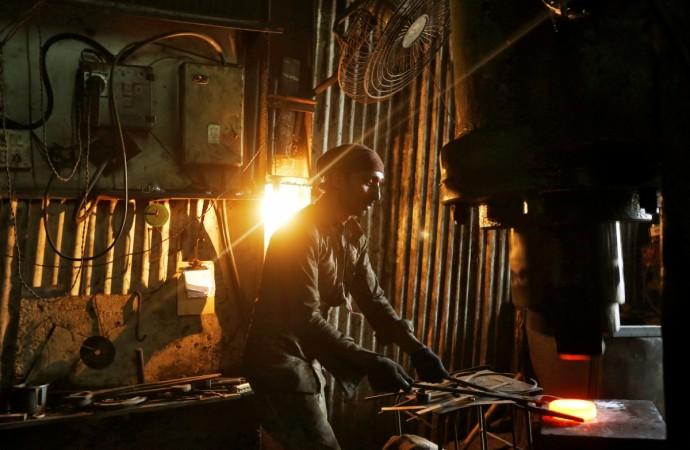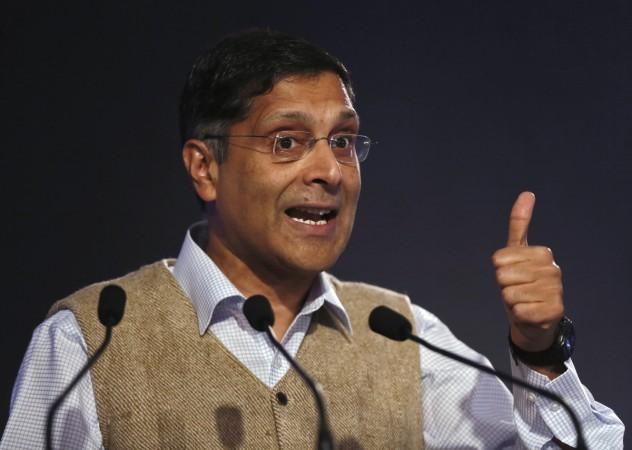
The second volume of the Economic Survey 2016-17, authored by Prime Minister Modi's chief economic adviser (CEA), Arvind Subramanian, released on Friday, cautioned that achieving the upper end of projections for economic growth at 6.75-7.5 percent for fiscal 2018 may be difficult.
The survey warned that a series of deflationary impulses are weighing on the economy and yet to gather full momentum. "These include stressed farm revenues, as non-cereal food prices have declined; farm loan waivers and the fiscal tightening they entail; and declining profitability in the power and telecommunication sectors, further exacerbating the TBS (twin balance-sheet) problem," the Survey said.
Subramanian said India is undergoing a structural shift in the inflationary process toward low inflation. The Survey noted that the oil market is very different today than it was a few years ago in a way that imparts a downward bias to oil prices, or at least, caps the upside risks to oil prices. "Also, farm loan waivers could reduce aggregate demand by as much as 0.7 percent of gross domestic product (GDP), imparting a significant deflationary shock to an economy," the report cautioned.
The Survey, tabled by Finance Minister Arun Jaitley in the Lok Sabha on the last day of the monsoon session, explained that current inflation is running well below the 4 percent target, and suggests that inflation by March 2018 is likely to be below the Reserve Bank of India's (RBI) medium term target of 4 percent.
The Survey has noted the prevailing optimism on structural reforms in the Indian economy. "Various factors such as launch of the goods and services tax (GST); positive impacts of demonetisation; decision in principle to privatise Air India; further rationalisation of energy subsidies and actions to address the Twin Balance-Sheet (TBS) challenge contribute to this optimism," it said.

The survey further pointed that sluggish growth and increasing indebtedness in some sectors of the economy have impacted the asset quality of banks and is cause for concern. The gross non-performing advances (GNPAs) ratio of SCBs rose from 9.2 percent in September 2016 to 9.5 percent in March 2017.
However, it noted that sustaining the current growth trajectory will require action on more normal drivers of growth such as investment and exports and cleaning up balance-sheets to facilitate credit growth.













